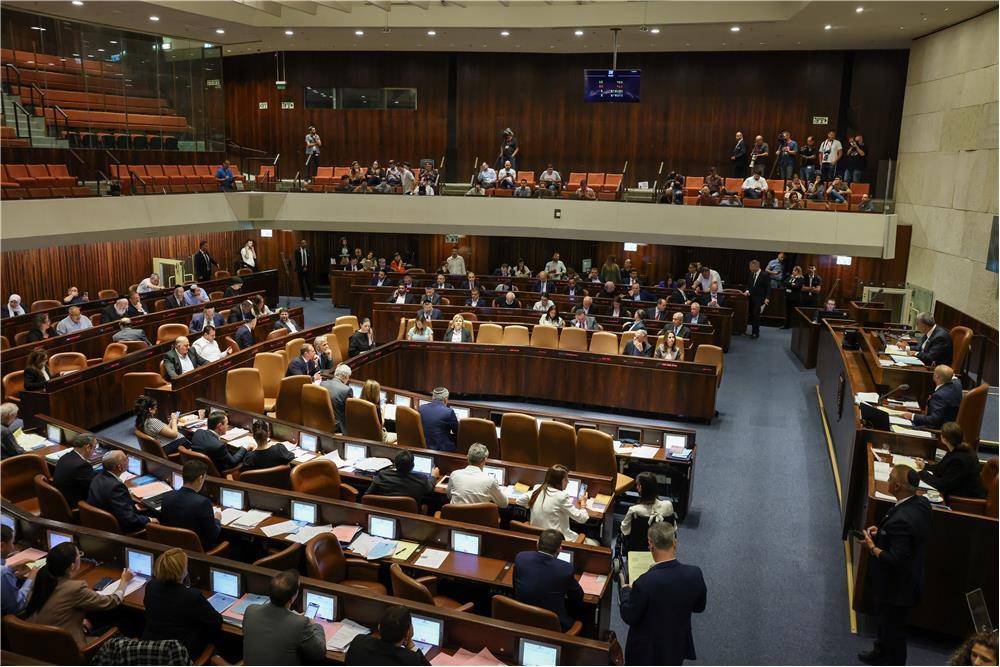Now is the time to increase your Israel real estate and shekel exposure
Since our last article about the real estate market, we got a lot of comments. Some of our readers strongly disagreed with our proposition that the shekel is temporarily weak and that it is headed for a reversal.
True, the sentiment was gloomy, and the political uncertainty coupled with the Moody’s negative review made it hard to see if and how the situation might improve. We argued then and still argue now (along with a flurry of Global Macro analysts) that the weakening of the currency is temporary. Further, we think that there has not, in a very long time, been a better environment to invest in real estate in Israel and in Tel Aviv in particular.
tel aviv weak real estate and currency prices
tel aviv weak real estate and currency prices
tel aviv weak real estate and currency prices
tel aviv weak real estate and currency prices
tel aviv weak real estate and currency prices
tel aviv weak real estate and currency prices
tel aviv weak real estate and currency prices
tel aviv weak real estate and currency prices
tel aviv weak real estate and currency prices
tel aviv weak real estate and currency prices
tel aviv weak real estate and currency prices
tel aviv weak real estate and currency prices
tel aviv weak real estate and currency prices
tel aviv weak real estate and currency prices
tel aviv weak real estate and currency prices
tel aviv weak real estate and currency prices
tel aviv weak real estate and currency prices
tel aviv weak real estate and currency prices
tel aviv weak real estate and currency prices
tel aviv weak real estate and currency prices
tel aviv weak real estate and currency prices
tel aviv weak real estate and currency prices
tel aviv weak real estate and currency prices
tel aviv weak real estate and currency prices
tel aviv weak real estate and currency prices
tel aviv weak real estate and currency prices
tel aviv weak real estate and currency prices
tel aviv weak real estate and currency prices
tel aviv weak real estate and currency prices
tel aviv weak real estate and currency prices
tel aviv weak real estate and currency prices
tel aviv weak real estate and currency prices
tel aviv weak real estate and currency prices
tel aviv weak real estate and currency prices
tel aviv weak real estate and currency prices
tel aviv weak real estate and currency prices
tel aviv weak real estate and currency prices
tel aviv weak real estate and currency prices
tel aviv weak real estate and currency prices
tel aviv weak real estate and currency prices
tel aviv weak real estate and currency prices
tel aviv weak real estate and currency prices
tel aviv weak real estate and currency prices
tel aviv weak real estate and currency prices
tel aviv weak real estate and currency prices
tel aviv weak real estate and currency prices
tel aviv weak real estate and currency prices
tel aviv weak real estate and currency prices
tel aviv weak real estate and currency prices
tel aviv weak real estate and currency prices
tel aviv weak real estate and currency prices
tel aviv weak real estate and currency prices
tel aviv weak real estate and currency prices
tel aviv weak real estate and currency prices
tel aviv weak real estate and currency prices
tel aviv weak real estate and currency prices
tel aviv weak real estate and currency prices
tel aviv weak real estate and currency prices
tel aviv weak real estate and currency prices
tel aviv weak real estate and currency prices
tel aviv weak real estate and currency prices
tel aviv weak real estate and currency prices
tel aviv weak real estate and currency prices
tel aviv weak real estate and currency prices
tel aviv weak real estate and currency prices
tel aviv weak real estate and currency prices
tel aviv weak real estate and currency prices
tel aviv weak real estate and currency prices
tel aviv weak real estate and currency prices
tel aviv weak real estate and currency prices
tel aviv weak real estate and currency prices
tel aviv weak real estate and currency prices
tel aviv weak real estate and currency prices
tel aviv weak real estate and currency prices
tel aviv weak real estate and currency prices
tel aviv weak real estate and currency prices
tel aviv weak real estate and currency prices
tel aviv weak real estate and currency prices
Despite recent political tensions, the Israeli currency demonstrates robust strength and resilience, as highlighted in a Bloomberg report. A number of analysts featured in the report have identified the Israeli shekel as a promising investment opportunity for 2023.
This optimistic outlook counters the negative economic forecasts stemming from potential controversial judicial reforms. These reforms, proposed by Prime Minister Benjamin Netanyahu, have sparked widespread weekly protests across Israel, as they aim to curtail the High Court’s power to rule against legislative and executive decisions, while granting lawmakers greater authority in appointing judges.
Consequently, Israel’s financial market reputation has experienced a discernable decline. However, financial experts such as Geoffrey Yu, Currency and Macro Strategist at BNY Mellon in London, and Peter Kisler, London-based Hedge Fund Manager at Trium Capital, express confidence in the shekel’s imminent recovery.
They emphasize that the Israeli currency has been the only one to consistently strengthen against the dollar over the past decade. Bloomberg attributes the shekel’s enduring success to favorable financial and economic conditions, including a current account surplus, substantial investments in high-tech industries, and the ongoing expansion of natural gas exports.
As European countries decrease their reliance on Russian gas, demand for Israeli natural gas is anticipated to rise.
Yu reaffirms this positive outlook, stating, “We do not see a paradigm shift at present. For the first time in nearly two years, our clients are flat the shekel and there is scope for further gains or purchases up ahead.”
Henrik Gullberg, another economist featured in the report, further highlights the shekel’s extraordinary performance, noting that it has been “so out of whack with traditional drivers” that it is likely to endure the current political turbulence. So why are these analysts mentioned by the Bloomberg report absolutely and utterly right?Well, fundamentals have not changed at all.
Israel is still running a current account surplus, the economy is growing and inflation in Israel is “sticky but has likely peaked” says Bank of America and sees inflation falling from its current annual rate of 5.4% to 3.4% by the end of the year.
Although Moody downgraded its outlook from positive to stable, the real driver for the early 2023 sharp depreciation had more to do with large purchases of foreign currencies by the financial institutions in late 2023 to rebalance their risk in light of the US stock market slide, than the political noise.
The Current Account Balances
Are you looking to buy a home in Israel ?
A country’s current account is a measure of the balance of trade between the country and the rest of the world. It includes the balance of trade in goods and services, net income from abroad, and net transfer payments.
If a country’s exports of goods and services exceed its imports, then it has a current account surplus. On the other hand, if a country’s imports exceed its exports, then it has a current account deficit.
A current account surplus means that the country is exporting more than it is importing, which implies that it is earning more foreign currency than it is spending on foreign goods and services.
This surplus can be used to pay off foreign debt, increase foreign investments, or save for future needs. As a result, a current account surplus can strengthen a country’s currency.
On the other hand, a current account deficit means that the country is importing more than it is exporting, which implies that it is spending more foreign currency than it is earning from foreign trade.
This deficit can be financed by borrowing from foreign sources or selling assets to foreigners. However, if the deficit persists, it can lead to an increase in the country’s foreign debt, which can have negative implications for the country’s economy.
The impact of a current account deficit on a country’s currency depends on several factors. In general, a persistent current account deficit can lead to a decrease in the value of the country’s currency, as it signals that the country is spending more than it is earning, which can erode investor confidence.
However, other factors, such as the level of foreign investment in the country, interest rate differentials, and geopolitical events, can also influence the value of a country’s currency.
In summary, a country’s current account deficit or surplus is a measure of its balance of trade with the rest of the world.
A current account surplus can strengthen a country’s currency, while a current account deficit can lead to a decrease in the value of a country’s currency, although other factors can also influence the currency’s value. Israel has been experiencing a current account surplus, which means that the country was exporting more goods and services than it was importing, and earning more foreign currency than it was spending on foreign goods and services.
One of the main reasons for Israel’s current account surplus was its strong high-tech sector, which contributed significantly to the country’s export revenues.
Israel is a leader in the development of advanced technologies, including cybersecurity, artificial intelligence, and biotechnology, which has helped it to maintain a competitive advantage in global markets.
The surplus in the current account can have a positive effect on the Israeli shekel in several ways.
First, it can increase demand for the currency as foreigners need to acquire shekels to pay for Israeli goods and services. Second, the surplus can help boost investor confidence in the Israeli economy, which can attract foreign investment and strengthen the shekel.
Finally, a current account surplus can help increase the country’s foreign reserves, which can provide a buffer against potential economic shocks and support the shekel’s value.
Since 2015, which coincides with the start of the gas inflows, the current account surpluses has been a really trustworthy indicator of the direction of the Shekel.
However, it’s important to note that other factors can and may still negatively impact the value of the Israeli shekel at least in the short term: factors such as changes in interest rates, geopolitical events, and global economic conditions.
For example, if there is an increase in global uncertainty or a decline in investor sentiment towards emerging markets, this can lead to a decrease in demand for the Israeli shekel, even if the country has a current account surplus. The trend however is clear and undeniable.
Over the longer run , with the zero dependence on energy imports (which traditionally accounted for the majority of the foreign currency denominated purchases) and the increase exports, especially high tech, balances will remain firmly in the green.
Israel Average Home Prices Index
Tel Aviv Dwellings Price Indices
Economic Indicators
The political volatility of the recent months will definitely take a toll on the economy , but this is not the first nor the last political flare up Israel has experienced and weathered in its 75 years of existence. We firmly believe in the resilience of the economy and the real estate market.





























